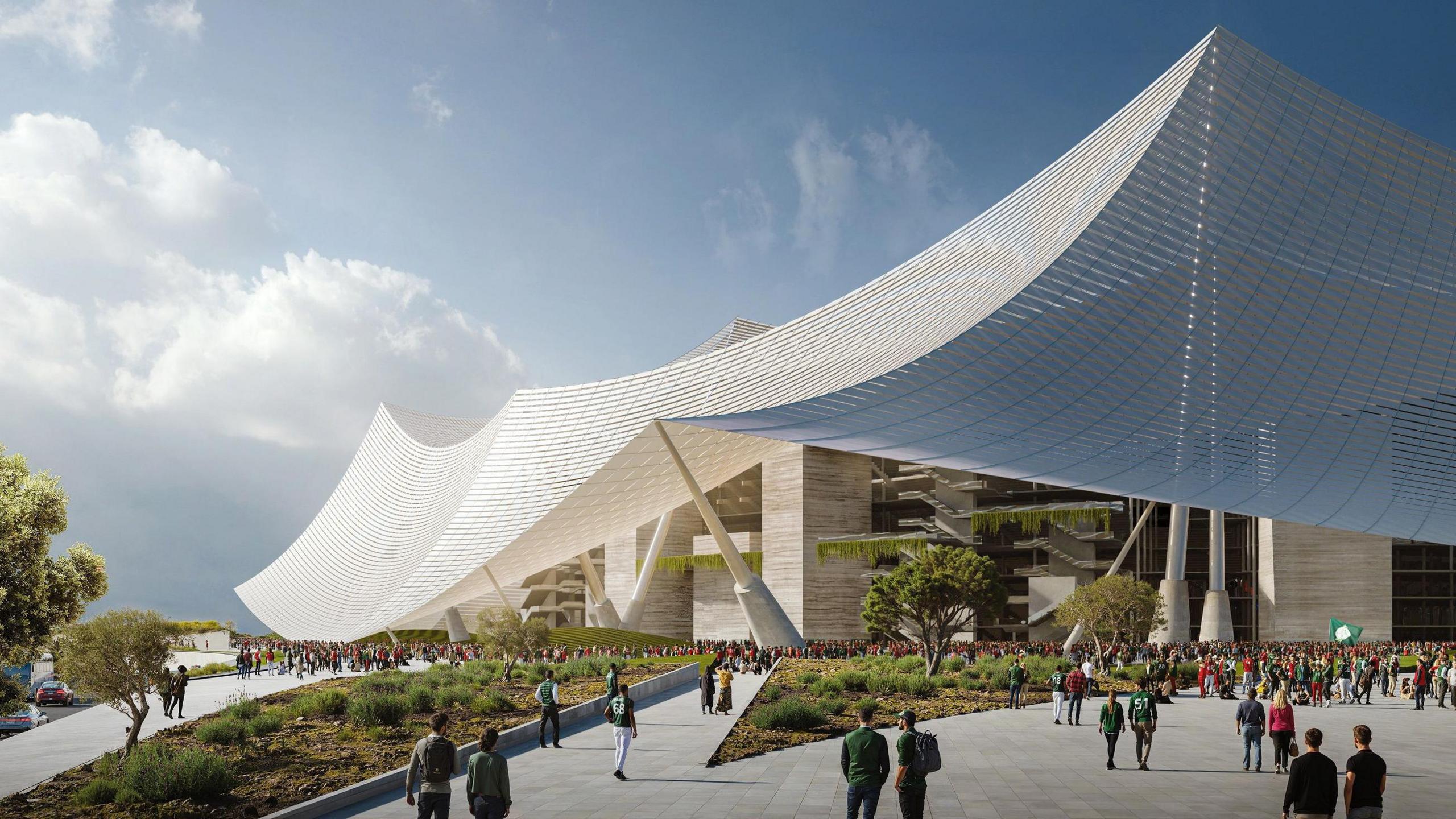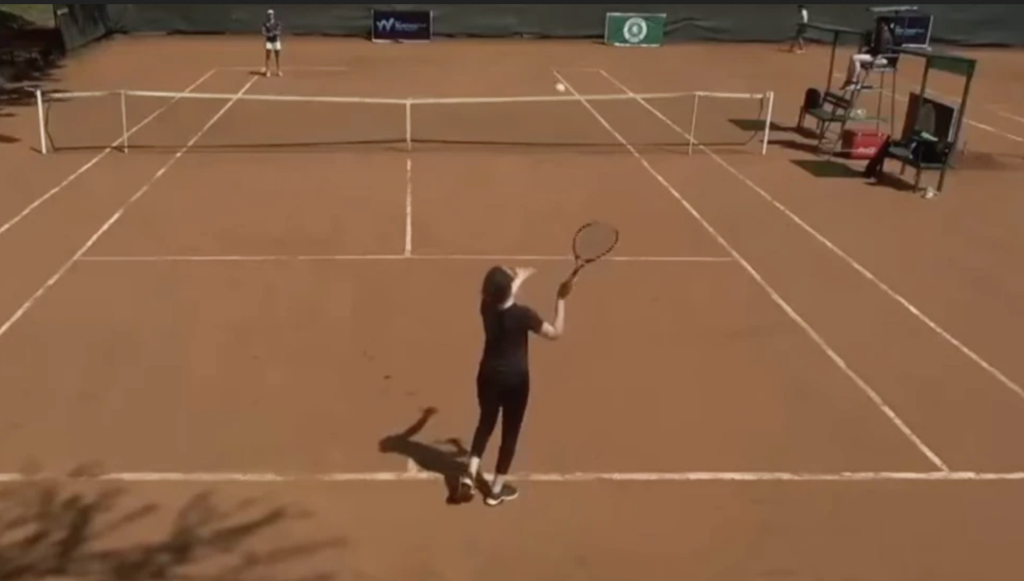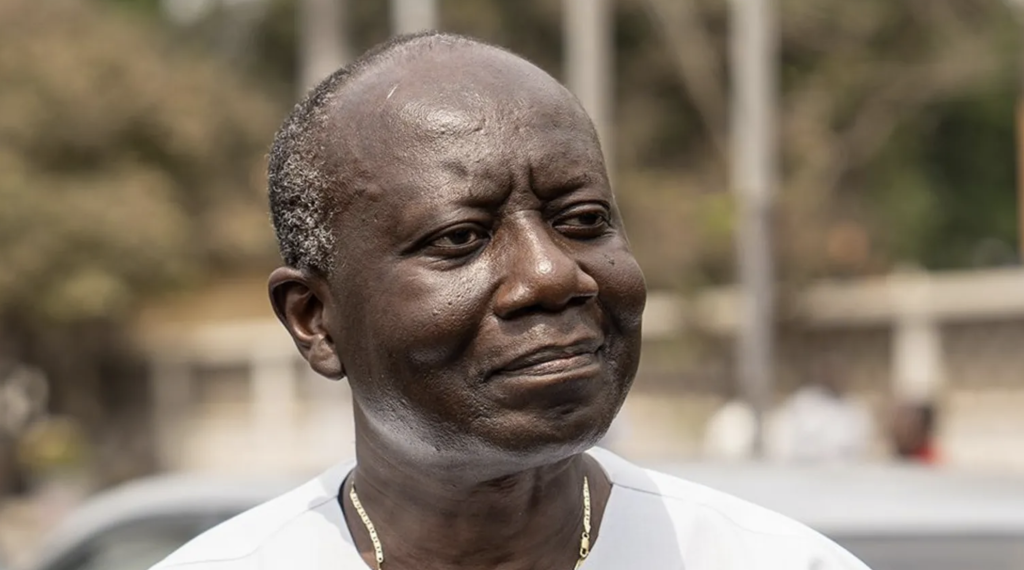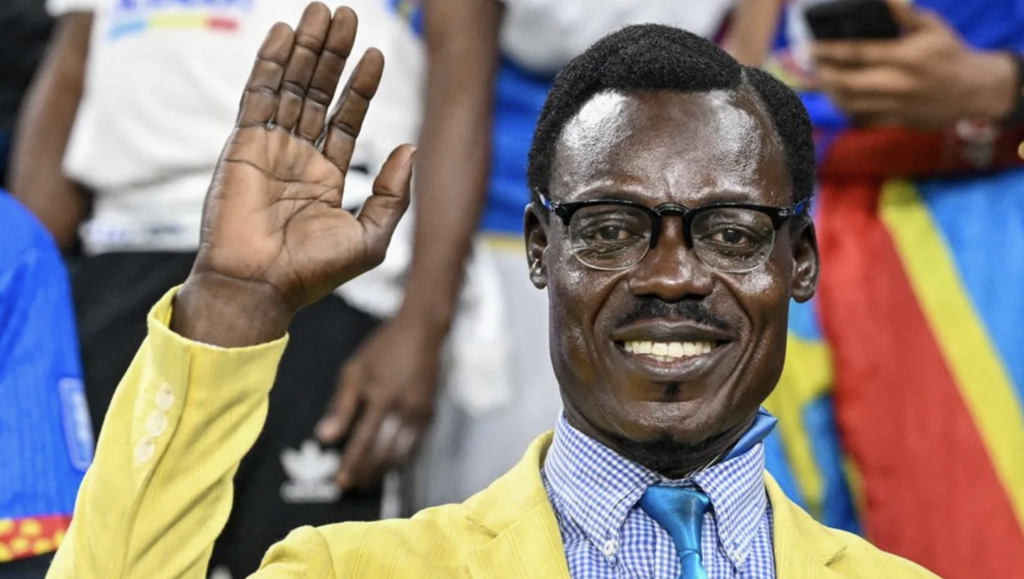Morocco eyes next step to become football superpowerf
Written by BBC on June 30, 2025
Morocco has established itself as the home of women’s football in Africa and over the next month its national team will look to realise its burgeoning potential on the pitch while the country continues to advance at pace off it.
The kingdom plays host to the 2024 Women’s Africa Cup of Nations (Wafcon) from 5-26 July, having also staged the 2022 finals and been named as the destination for the 2026 edition.
That is just the tip of the iceberg, given the fact that high-profile men’s tournaments also loom on the horizon and hundreds of millions of dollars are being spent on large infrastructure projects.
The North African nation is aiming high on both football’s continental and global stage – with big football fan King Mohammed VI taking a keen interest in developments.
The next challenge is for the Atlas Lionesses to go one better than their second-placed Wafcon finish on home soil three years ago.
Yet the ripples from this tournament could be felt in the women’s game and beyond for years to come.
“The next Wafcon will generate even more enthusiasm,” Mehdi El Qaichouri, the coach of top-flight women’s side FUS Rabat told BBC Sport Africa.
“It might trigger young girls to start playing officially or dream of being a professional and, why not, one day be part of our national team.”
Boost to the local game
FUS Rabat train in the shadow of the Prince Moulay Abdellah Stadium, which attracted an African record crowd of 50,000 to the 2022 Wafcon final as Morocco were beaten 2-1 by South Africa.
The side finished fourth in the Moroccan Women’s Championship last season as cross-capital rivals AS FAR scooped up their 12th title. The army club may dominate for now, but El Qaichouri anticipates more competition in the future.
“It is the will of the club, the whole country and His Majesty the King to develop women’s football in Morocco,” he added.
“The project is quite fresh and the desire is there.
“More and more clubs are opening women’s sections. That’s a big strength.”
FUS goalkeeper Kawtar Bentaleb, who helped Morocco become continental futsal champions this year, says the women’s game has been growing in profile.
“It didn’t use to be given any attention,” she added.
“[Tournaments] being hosted in Morocco, whether it’s for women or men, will make us progress.
“Younger generations really have all the infrastructure and support they need to develop themselves. I urge them to take full advantage of all the structures put in place, because they can only benefit.”
A country undergoing transformation
The 2025 Africa Cup of Nations (Afcon) will begin in Morocco in December and large sums are being invested in infrastructure projects as the kingdom prepares to co-host the Fifa World Cup in 2030.
The country plans to expand its airport capacity from 38 million (at the end of 2024) to 80 million passengers in the next four and a half years, while also working to extend its high-speed train network to Marrakech and further south to Agadir.
A total of 45 stadiums and training facilities are undergoing expansion or renovation, with the biggest single development being the construction of the 115,000-capacity Stade Hassan II near Casablanca.
“Morocco is not like it used to be – it is developing at a very fast rate,” one visitor to Rabat’s souk told the BBC.
“They’ve been building multiple projects and making sure the infrastructure is ready. Now things are being built faster so [God willing] it will all be ready on time for Afcon and for the World Cup.”
The hospitality sector will also have a chance to profit.
“We’d like to welcome people from all over the world and people who don’t know Morocco,” David Azuelos, the owner of a guest house in the capital, said.
“Since the announcement of future events, everyone’s into sport and football. We hope the women’s tournament will have as much impact as the men’s.”
The price of development

Image source, Populous/Getty Images Image caption, Morocco hopes the Stade Hassan II will be chosen to host the 2030 World Cup final ahead of venues in Portugal and Spain
Building the Stade Hassan II alone is expected to cost $500m (£365m), a staggering sum given some communities are still rebuilding after the powerful earthquake that hit Morocco’s central region in 2023.
High taxation rates – with all annual personal income over 180,000 dirhams ($19,700, £14,400) taxed at 37% – are also filling the country’s coffers and helping fund infrastructure projects.
Amnesty International notes that Morocco restricts freedom of expression, including through the criminalisation of criticism of Islam, the monarchy and state institutions, and when the BBC toured Rabat earlier this year no-one was prepared to speak on the record about how public finances were being spent.
That is, in part, because of King Mohammed VI’s passion for football and the projects associated with bringing the World Cup back to Africa for the first time in 20 years.
However, in February a trade union official blamed government policies for “widening economic disparity” in the country, where the most recent census showed that unemployment stood at 21.3%.
Morocco has won male youth titles in recent years but will have some major silverware to show for its outlay on footballing development should the Atlas Lionesses lift the Wafcon trophy in Rabat on 26 July.
“In the last four years, I feel like I’ve seen a shift in the change of investment, in taking women’s football seriously, not only in Morocco but across Africa as well,” forward Rosella Ayane told the BBC’s Africa Daily podcast.
“Morocco is really leading the way. The football centre in Rabat (the Mohammed VI Complex) is probably one of the best around the world.
“It’s like anything in life. [If] you invest your time, money and resources, then it’s only going to improve.”




